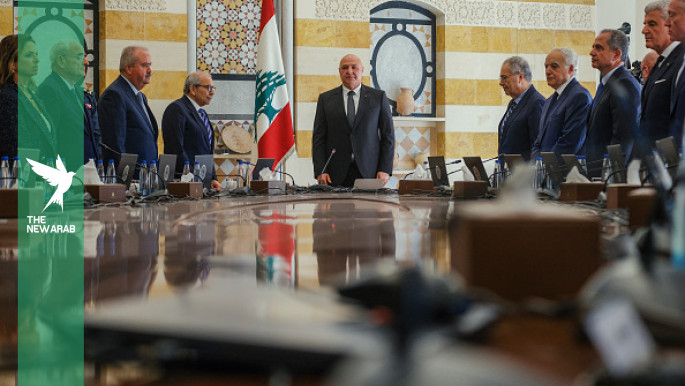Last month, Lebanon’s government tasked the army with preparing a plan to monopolise arms under the state and endorsed a US proposal to disarm Hezbollah in exchange for an Israeli ceasefire [Getty]
A senior Hezbollah official said on Saturday that Lebanon’s army plan to place all weapons under state control cannot move forward while Israel continues its military operations in the country.
Mahmoud Qmati, deputy head of Hezbollah’s political council, told Reuters that Friday’s cabinet session on the army’s disarmament plan had offered “an opportunity to return to wisdom and rationality and prevent the country from sliding into the unknown”.
The Lebanese cabinet on Friday endorsed the army’s proposal and pledged to draft a national security strategy. But Hezbollah and Amal ministers, joined by a fifth Shia minister, Fadi Makki, walked out of the session shortly after army commander General Rodolphe Haykal entered.
Qmati said Hezbollah’s position reflects the government’s own admission that the US-backed roadmap depends on Israel’s actions.
“As long as Israel does not halt its raids and withdraw its forces from southern Lebanon, implementation must remain suspended until further notice,” he said.
Israel has continued near-daily strikes in violation of a ceasefire deal approved last November, killing dozens of people including children.
Last month, Lebanon’s government tasked the army with preparing a plan to put the country’s weapons under state control and endorsed a US proposal to disarm Hezbollah in exchange for an Israeli ceasefire.
Hezbollah has categorically rejected both decisions, calling instead for a comprehensive national security strategy.
The US paper, amended by Lebanese officials, calls for full implementation of the Taif Accord, the Lebanese constitution, and UN Resolution 1701.
It also envisions the phased dismantling of all non-state armed groups, support for the Lebanese army and security forces, Israel’s withdrawal from disputed border points, and resolution of prisoner issues through indirect negotiations.
US envoy Thomas Barrack failed to secure Israeli approval for the joint US-Lebanese document, later conditioning progress on Beirut implementing the army’s plan.
Lebanese sources told The New Arab the army’s proposal was designed to avoid confrontation and maintain civil peace, with phased coordination to hand over Hezbollah’s weapons starting south of the Litani River before expanding to other regions.


